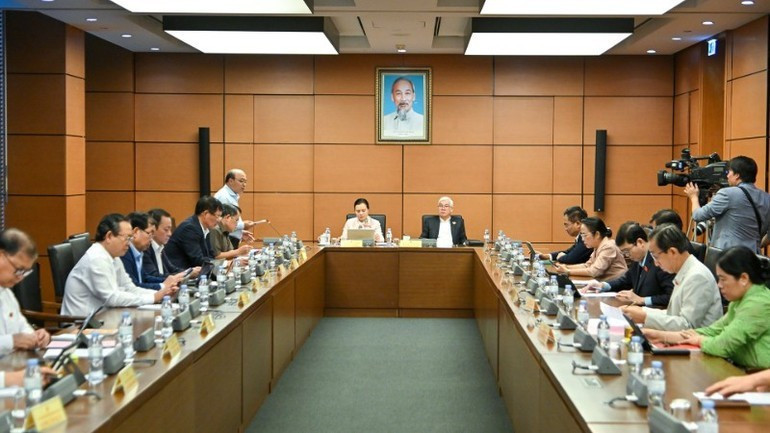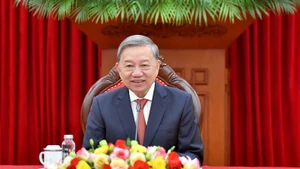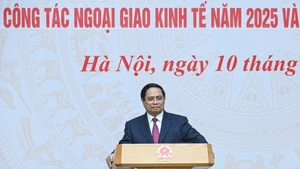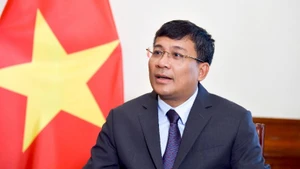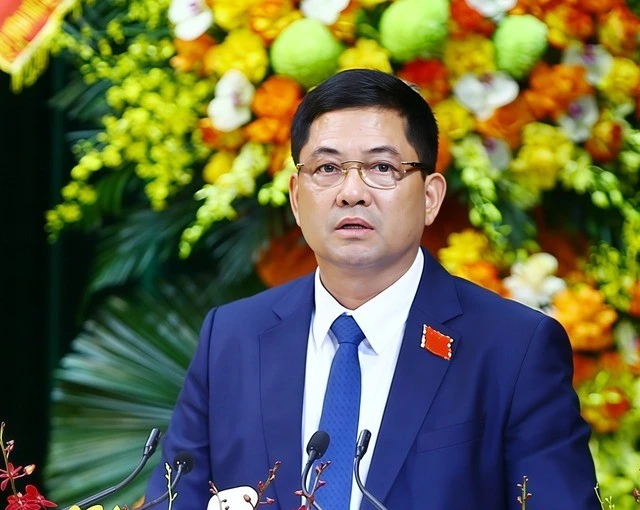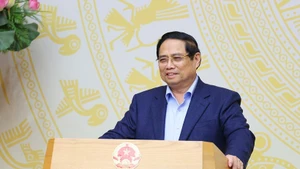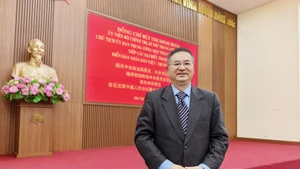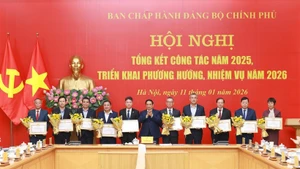A series of current events, with a wide scope, were analysed and discussed in detail, from the assessment of the results of the implementation of the 2025 socio-economic development plan; the expected socio-economic development plan for 2026; the results of the implementation of the National Assembly’s resolutions on socio-economic development; restructuring the economy; to the implementation of the Constitution, laws, and resolutions of the National Assembly; ordinances and resolutions of the National Assembly Standing Committee in 2025... At the discussion sessions, there were more than 90 opinions of National Assembly deputies; then the Prime Minister, Deputy Prime Ministers: Pham Thi Thanh Tra, Le Thanh Long, and a number of ministers participated in answering the issues of concern to deputies and voters.
Speaking at the Dien Hong Hall on the operation of the two-tier local administration, Deputy Prime Minister Pham Thi Thanh Tra said that although it has just been deployed, the apparatus has basically operated stably, smoothly and has been recognised by the people. Accordingly, rearranging the administrative model, issuing a synchronous system of institutions and policies, and promptly removing obstacles for localities are the greatest success. The Deputy Prime Minister agreed with the comments of many delegates and voters that there are still difficulties in human resources, infrastructure and financial mechanisms that need to be further improved.
Stating that “the apparatus has light focal points but heavy workload”, delegate Tran Quoc Tuan (Vinh Long delegation) and many other delegates frankly suggested that if life is not guaranteed, many places still lack equipment for work, suffer from slow investment in digital infrastructure and training in technology skills to improve administrative efficiency, policy efficiency may fall short of expectations.
National Assembly deputies and many local voters proposed solutions related to the goal of perfecting institutions by the end of 2025, focusing on increasing resources for investing in digital infrastructure in remote and isolated areas, building a minimum payroll while simultaneously creating a salary mechanism to attract high-quality human resources. Obviously, from recent practice, this is not just a “proposal, recommendation”, but a “correct and sufficient” requirement to create a strategic turning point for the apparatus to be “light but strong”, serving the people more effectively and better.
Explain more clearly the Government’s determination of six key groups of solutions, in which priority is given to perfecting institutions and policies; restructuring the team of cadres, civil servants, and public employees, especially at the commune level; Deputy Prime Minister Pham Thi Thanh Tra said: The Ministry of Home Affairs will soon complete the job position framework as a basis for assigning positions for the 2026–2030 period, and at the same time implement the project to train commune-level officials until 2030.
The Government is also interested in reviewing and designing a financial mechanism suitable for the new model, increasing investment in digital transformation. The Government is also building a comprehensive salary reform project, expected to be submitted to the Party Central Committee in the first quarter of 2026. The reform must be implemented carefully, fundamentally, in accordance with the budget capacity, ensuring the lives of officials and civil servants.
The draft Law on Cyber Security submitted to the National Assembly this time, for the first time, added provisions on child protection, which received the approval of a large number of National Assembly deputies. Giving a more specific opinion, delegate Ma Thi Thuy (Tuyen Quang Delegation) said, “if it only stops at children, it is not enough”. The delegate said: In reality, the elderly, the disabled, women, and ethnic minorities are becoming victims of many high-tech scams with serious consequences. The delegate proposed expanding Chapter III to “Protecting children and vulnerable groups”, forcing social networking platforms to build a mechanism for identification, warning, and immediate support; thereby continuing to affirm the humane policy of “no one is left behind in digital transformation”.
The draft Law on Protection of State Secrets (amended) received high praise when it removed nine groups of information (population, gender equality, cultural heritage, etc.) from the confidential list. National Assembly delegate Thai Thi An Chung (Nghe An Delegation) commented: Such an amendment demonstrates sound judgment, avoiding the abuse of secret stamps by some agencies and units, facilitating the press and the people’s right to access information, and strengthening supervision. Some delegates expressed concerns that the provisions on financial information that could potentially affect national security are too broad, conflicting with the transparency principle of the Budget Law. The spirit of law-making needs to ensure national security while facilitating the implementation of the right to access information for society and people.
The third working week of the 10th Session focused largely on legislative work with more than 20 draft laws being discussed and commented on. Of these, the Law on Digital Transformation and the Law on E-Commerce emerged as two key, strategic projects, clearly reflecting Viet Nam’s “digital nation” orientation by 2030. In terms of urgency and strategic vision, the Law on Digital Transformation was officially discussed by the National Assembly for the first time, marking a turning point in legalising the National Digital Transformation Strategy. This week, until the end of November, the National Assembly Standing Committee also held the 50th Session, divided into four sessions, organised right during the 10th Session with a busy legislative agenda, with the largest number of legislative contents since the beginning of the term of the 15th National Assembly.
